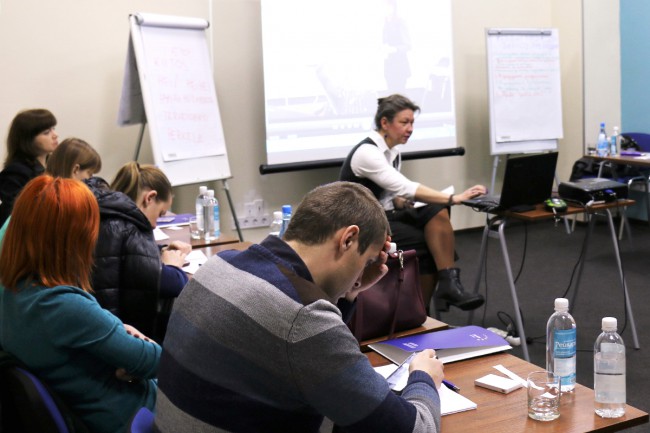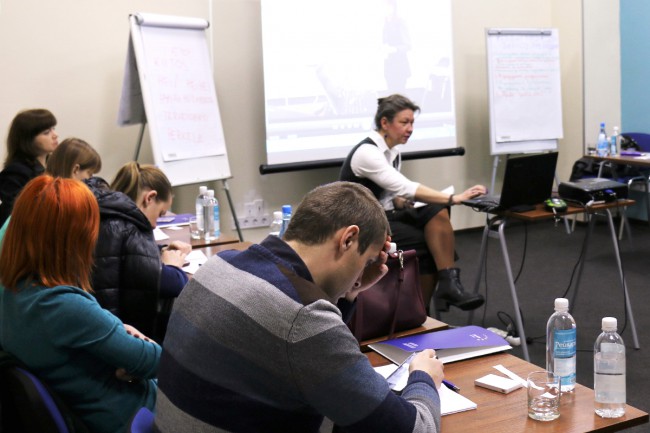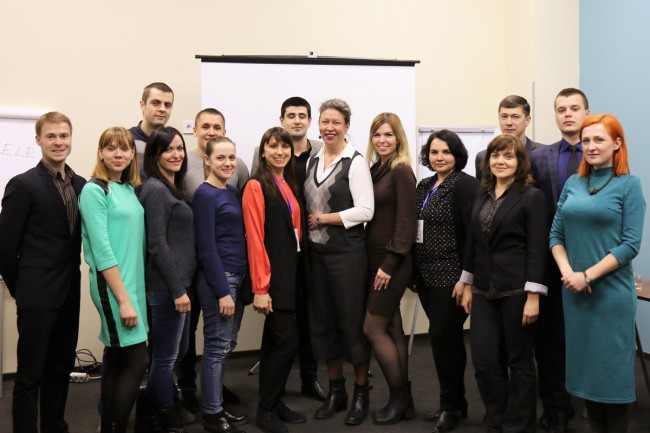Human rights training for National Police of Ukraine to go nationwide with EUAM support
March 31, 2017
ourteen officers in the National Police of Ukraine (NPU) completed a three-day ‘train the trainers’ programme yesterday organised by the EU Advisory Mission (EUAM). The training was requested by the Human Rights Directorate of the NPU to support their further efforts to conduct trainings and education programs throughout Ukraine in order to increase accountability and awareness of human rights as well as prevent and combat human rights violations.

Training in action
The ‘train-the-trainers’ principle, means that the participants in the training are instructed in methodologies for how to conduct effective trainings, so that they can lead courses of their own. The current ‘train-the-trainers’ course was conducted in Kyiv and further sessions are planned for other cities in Ukraine in the coming months.
“The protection of human rights is the basic task of every police officer,” said Sari Rautarinta, EUAM Human Rights and Gender Adviser/Trainer and a serving police officer from Finland. “The creation of a dedicated Human Rights Directorate in the National Police is a very positive step for the future of law enforcement in Ukraine. The Directorate has only been fully operational since summer 2016, and we are delighted to be providing support as they go about their efforts to put human rights at the heart of police work in Ukraine.”
The practical element of protecting human rights in the face of the challenging situations that police officers are often confronted with was a central part of the training. Trainees were encouraged to present on human rights topics and the real life challenges connected to this sphere, which were then discussed within the group. The mixed group included people with different responsibilities and professional experiences, namely from Human Rights Directorate of NPU, International Cooperation Department of NPU and Main Investigation Department of NPU and Vyshhorod Training Center of Police, which enabled a diverse range of perspectives to be offered for discussion.



